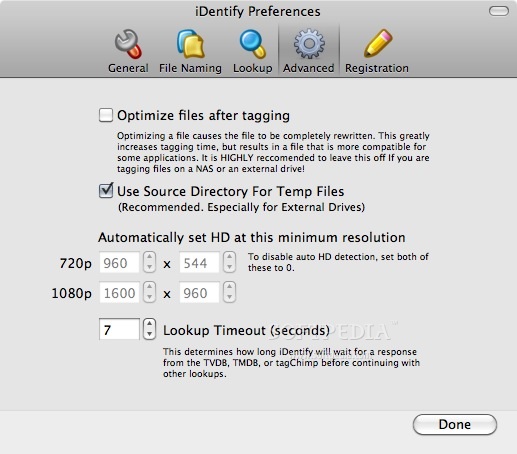Top 5 alternatives to Safari – the best web browsers for Mac Gadget Magazine Notice: Undefined index: ordernextposts in /nas/content/live/gadgetmag/wp-content/plugins/smart-scroll-posts/smart-scroll-posts.php on line 194 Notice: Undefined index: postlinktarget in /nas/content/live/gadgetmag/wp-content/plugins/smart-scroll-posts/smart-scroll-posts.php on line 195 Notice: Undefined index: postsfeaturedsize in /nas/content/live/gadgetmag/wp-content/plugins/smart-scroll-posts/smart-scroll-posts.php on line 196. Love it or hate it, Safari is your first port of call for all things internet during that magical moment when you boot up your Mac for the very first time. Luckily, as far as browsers go, it’s not a bad one either. Having your web browser made by Apple has its benefits; it’s fast, beautifully-designed, and integrated with your Mac in a way no other browser ever will be.

Identify Alternatives For Macbook Pro
That said, it’s nice to know about the competition – whether it’s for a quick flirt with Chome, a full-blown affair with Firefox or even to ditch your Apple factory browser altogether for Opera. Whatever reason you have for switching browsers, here’s our guide to shopping around and finding the best browser with the feature-set that works for you. Google Chrome (Free, ) When Google first released their much-anticipated web browser for Windows, Mac users waited with baited breathand waitedand waitedand eventually passed out as they hadn’t exhaled for a good few months.
But now Chrome has been successfully ported to OS X for some time now, was it worth the wait? The answer is a resounding “HELL YEAH!”. With an aesthetic quality to rival anything that Jony Ive has ever dreamt up, and that a few browsers are still playing catch-up with, Chrome is without a doubt, Safari’s biggest competitor. The only real setbacks here is that it doesn’t play half as nice as Safari does with RSS feeds (so if you’re not using an app or web-based feed reader, you might want to step away now) and that updates can take some time (did anyone else feel like Lion functionality took forever to be pushed out?). Firefox (Free, ) Firefox has been around for so long now that it’s almost plausible that it was originally built before the internet itself, but don’t let the fact that it might have been built by dinosaurs put you off. This browser is the open-source community’s flagship offering, meaning it’s updated by a whole load of passionate people on a day-by-day basis.
In other words, it’s got a heritage but that doesn’t mean it won’t beat any of the others. Firefox’s open-source infrastructure means that improvements and updates are made by the people, for the people and most features like the built-in password manager and the plethora of available add-ons (mini apps that add extra functionality to the browser) are extremely useful. The downside? Well, there’s no easy way of saying this, but Firefox is a bit of a RAM-hog. If processor-intensive browsing is your bag then great, otherwise, you’ll have to keep a close eye on it when you’re running a load of apps and your Mac starts to get sluggish. Opera (Free, ) Much like Firefox, Opera seems to have been around for Donkey’s years, but don’t let that put you off.
Opera has more features built in to its browser than any other in this round-up, and whilst not every single one may be useful, there are some absolute gems here such as native BitTorrent support (downloading via Torrents just got a lot easier) and a ‘Turbo’ mode, which optimises web pages for times when your bandwidth is limited (think an entire airport departure lounge crowding around one poor, struggling WiFi hotspot). There’s all your Lion support built in, and they’ve even borrowed a feature or two from Safari (see exhibit A, above). Opera isn’t exactly well-known, nor widely used, but it’s certainly the dark horse in this browser battle.
Camino (Free, ) With Camino’s original name of bringing all the functionality of Firefox into the native environment of OS X now somewhat redundant (Firefox has come on leaps and bounds as far as Mac support goes since its early days), the whole project seems to have been put on the back burner of late. That said, there’s still a few good reasons why you’d have Camino as your browser of choice. For starters, passwords are saved into the OS X Keychain as opposed to any proprietary system touted by Chrome, Firefox or Safari and because the whole thing runs on Firefox’s Gecko rendering engine, you know pages are going to load fast, accurately and with the stability you’d expect from Firefox, all with a slightly more Apple-like interface. Stainless (Free, ) As we’ve already mentioned, Mac users had a long and excruciating wait for an OS X-friendly version of Chrome, so long in fact, that a few clever chaps decided to release Stainless – a Mac-only browser that bought Chrome’s multi-processing architecture (that’s the stuff that makes pages fly) to your Machine. Much like Camino, the fact that Chrome is now fully supportive of OS X has made the whole project a little redundant, but there are still a fair few features like the natty little bookmarks sidebar, that make it a great alternative if you’re getting sick of Safari.
So there you have it, five great alternative browsers to Apple’s own, stellar offering. We’re using a mixture of Safari and Firefox here in the office, with Chrome coming a close third where needed, but which is your favourite? Have we missed an absolute gem?
Let us know in the comments, or on. Automatic bans awarded to anyone who mentions Internet Explorer. Tags:,.